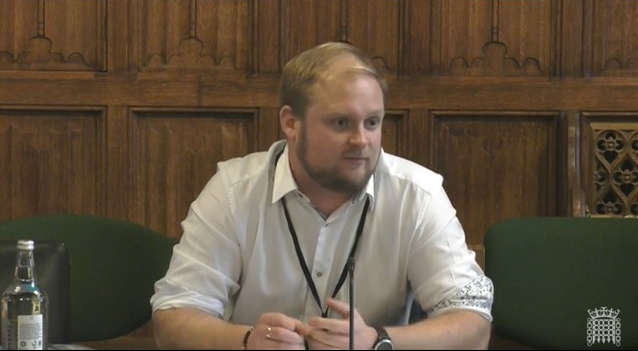New data highlights significant work needs to be done around homelessness, disproportionality and prison numbers in Wales.
Dr Robert Jones at the Wales Governance Centre has just published the latest factfile Prisons in Wales that looks at data from 2022. The report makes for pretty grim reading. Since our 2019 blog: What new data reveals about criminal justice in Wales, this latest factfile suggests that the picture has worsened.
Welsh data matters
Criminal justice is not devolved to the Senedd (the Welsh Parliament), making Wales an outlier in western democracy in that it is missing one pillar of democratic governance - the ability to run its own judiciary. Instead, justice policy in Wales is the ultimate responsibility of the UK Government, whilst the Welsh Government has responsibility for policy areas such as crime prevention and community safety. Areas including the tackling of substance misuse, education, health and accommodation, which all directly affect those within the criminal justice system in Wales, are devolved.
Given the non-devolved nature of criminal justice in Wales, this can lead to a lack of accountability and joined up thinking when it comes to the delivery of criminal justice services. This level of accountability and joined-up policy has improved through both the work of the Criminal Justice Board for Wales and the publications of the Women in Justice Blueprint and the Criminal Justice Anti-Racist Action Plan for Wales. Yet, despite this work, the data suggests that issues persist, particularly around women and disproportionality (highlighted in detail below).
One solution is to ensure that we have access to Welsh-specific data, enabling the monitoring of the impact of UK Government criminal justice policy on Welsh people in prison and Welsh prisons, as well as how Welsh Government policy is affecting those in the criminal justice system.
Headline data
Imprisonment rate
-
On average 5,069 people were held in Welsh prisons in 2022 – the first time this figure has surpassed 5,000.
-
The Welsh Prison Population (based on home addresses being in Wales) increased to 4,682 in 2022 from 4,483 in 2021, 2021 had the lowest level since the WGC began recording the data.
-
Based on the "in country" method used by the World Prison Population list, Wales had an "in-country" imprisonment rate of 163 prisoners per 100,000 in 2022 compared to a rate of 134 per 100,000 in England. The average rate for Western Europe is 83 per 100,000 and this data shows Wales has the highest in country prison rate in the whole of Western Europe.
-
This rate in Wales has now increased to 177 per 100,000 as of September 2023 (mainly due to HMP Berwyn reaching full operational capacity).
Prison Population
-
The average number of people held in Welsh prisons surpassed 5,000 for the first time in 2022 and since HMP Berwyn became operational in 2017 the average number of people being held in Wales has increased by 28%.
-
On average, 1,617 prisoners from England were being held in Welsh Prisons (which is roughly the capacity of HMP Parc).
-
Approximately one third (32%) of all people in prison in Wales in 2022 were from England.
Women
-
In 2022, there were 226 Welsh women in prison, compared with 218 in 2021.
-
74% of all women sentenced to immediate custody in Wales were handed sentences of 12 months or less in 2022.
-
21% of all women sentenced to immediate custody at courts in Wales in 2022 were handed sentences of one month or less.
Ethnicity
-
When analysed alongside Welsh population data from the 2021 census, Black people in Wales were the most overrepresented ethnic group in prison in 2022 followed by those from a mixed background and then Asian people.
-
Black people made up 3.1% of people from Wales in prison despite only being 0.9% of the Welsh population. For Asian people this was 3.2% in prison compared to 2.4% in the general population and for those of mixed ethnicity, the figure was 3% compared with 1.5%.
-
In Wales, the average custodial sentence length between from 2010 to 2022 was 8.5 months higher for Black defendants (25.4 months) than for "White defendants" (16.9 months).
-
Figures from probation also show that people from racially minoritised backgrounds are disproportionately represented with 90 Black people per 10,000 in the population under probation supervision, compared with 56 people per 10,000 from a Mixed background, 44 people per 10,000 from a White background, and 35 people per 10,000 from an Asian background.
Accommodation on release
-
In 2023, 423 people were released from Welsh prisons without a fixed address.
-
The number of those rough sleeping at 3 months post-release increased by 205% in Wales in 2022/23 an increase from 41 in 2021/22 to 125 in 2022/23 .
Safety in custody
-
With the prison population in Wales reaching its highest ever levels in September 2023, official data shows that the number of prisoner-on-prisoner assaults, assaults on staff, and self-harm incidents were higher in the first 6 months of 2023 than in the first 6 months of 2022.
-
Between 2020 and 2022 there were 13 self-inflicted deaths in Welsh prisons compared to just 2 deaths in 2018 and 1 in 2017.
What next?
This paints an upsetting picture when comparing Welsh data to that of England, and a wider European level. Wales sits very much at the bottom of the league, and more work needs to be done to understand why this is the case.
The UK Government cannot ignore this data and simply state that there is no distinct issue in Wales. The data tells a very different story. We also need to better understand the impact of Welsh Government policy and will be doing some of this work through responding to the Welsh Government’s ending homelessness White Paper. First and foremost, we need to see better outcomes for people being released without a fixed address.
We continue to work closely with our partners on the Criminal Justice Anti-Racist Action Plan and hope that the implementation of that plan will start to positively affect data around disproportionality. We also note the oral statements given by the Social Justice Minister, Jane Hutt MS, to the Senedd on the updates to the Criminal Justice Blueprints, and again hope that they seek to address the number of women in Wales being given custodial sentences.

To conclude we firmly believe that Welsh specific data needs to be made available routinely and that this data is accessible. The Wales Governance Centre relies on freedom of information requests and that method of gathering Welsh data is unsustainable and makes monitoring and comparison more difficult.
Clinks, in our response to the Welsh Affairs Committee inquiry into Welsh prisons, advocates for Wales-only data routinely published as part of statistics releases, as it would help to improve understanding of specific measures that apply in Wales, and so help improve outcomes by supporting the identification of good practice. We would like to reiterate that call again here.
What's new
Blogs
Homelessness Strategy Blog
Publications
The Young Review - 10 Years On
Latest on X
The role is for a leader from an organisation focused on racially minoritised people, with expertise in service delivery, policy, advocacy, or related areas in criminal justice. Racial disparities are present at every CJS stage. This role ensures these voices are central in shaping policy to help address and eradicate them. Apply by Mon 18 Nov, 10am. More info: https://www.clinks.org/voluntary-community-sector/vacancies/15566 #CriminalJustice #RR3 #RacialEquity

